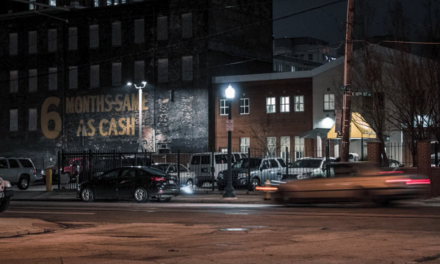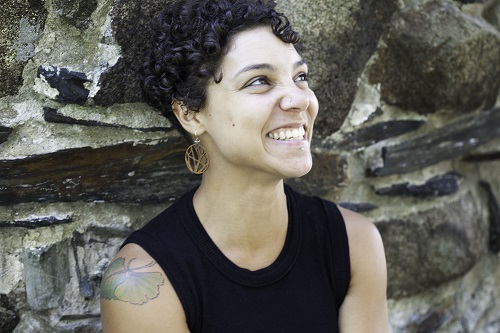
In our Issue 17.1, we feature two of Rage Hezekiah’s poems, including “Sex Education.” As part of our series From Our Contributors, she explains the background behind that poem.
Rage Hezekiah: Sex Education is part of a series of poems I’ve been writing about my early sexuality, a topic which has preoccupied me for much of my life. My first full-length collection, Stray Harbor (Finishing Line Press, 2019), is full of poems about discovering my body and my own desires. Last summer I spent three and a half weeks at Ragdale, unexpectedly taking a deep dive into the messages I received about my body and sex as a young person.
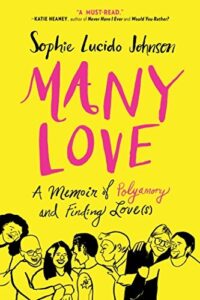
This was not the project I proposed when I applied, but it came about organically after a friend from high school scooped me up from the airport. Luke and I hadn’t seen each other in a decade, but when he arrived outside O’Hare, we slipped into conversation seamlessly. It was a comfort to sit beside him in the passenger seat, catching up as he drove me north to Lake County. Days later, we went to see a matinee of CATS with his partner, Sophie Lucido Johnson. Back at their place afterward, he gifted me a copy of Sophie’s book Many Love: A Memoir of Polyamory and Finding Love(s). We gathered around the table with their new roommates and ate tacos Luke had made. Sophie recommended everyone read Peggy Orenstein’s Girls & Sex with an urgency that compelled me.
At Ragdale, I devoured Sophie’s book, staying up late into the night to read about her exploration of love and relationships. I swooned over her self-effacing humor and her relationship with Luke. Her drawings made me laugh, and I identified with her longing. I saw myself in her work, and wanted more. When I finished her book, I went to the Lake Forest Library and borrowed Girls & Sex. I texted Sophie partway through saying:
“I’m reading girls and sex and it is kind of devastating.”
“It’s SUPER devastating. I think everyone needs to read it. I’m glad you’re reading it! Her research is so intimate.”
“Thank you for the recommendation, you kind of opened this teen sex wormhole for me and I’m really grateful. <3 Lemme know if you have other books you love that are in this realm, I’m riding this train till the wheels fall off”
“ 🙂 This devastating exposé: What Teenagers are Learning from Online Porn. It is a really good companion piece.
“THANK YOU”
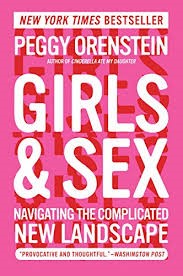
Girls & Sex is composed of several interviews Orenstein conducted with teenage girls. Reading her work, I was struck by the commonality of the interviewees’ experiences, the seemingly universal messages they received; that “girls are . . . taught to please their partners without regard to their own desires.” I thought about what I’d learned about my body and my own pleasure as a girl, despite my access to good information.
I was grateful to be raised in the Unitarian Universalist Church, a denomination known for freedom of belief. As an adolescent, I attended the About Your Sexuality (now Our Whole Lives) program, the goal of which was deepening my understanding of sex and making informed choices. I remember the freedom I felt talking openly about my body with people my age. Before AYS, I spent hours on the phone with boys from school asking them about masturbation. I wanted to know what they thought about, what positions they were in, how often and where they did it. These conversations felt like scientific interviews for me, though in hindsight I have little information about what it felt like for the boys. I felt an urgency to talk about these things, though I don’t remember revealing anything about my own experience. I definitely wasn’t having these conversations with girls my age. I wonder now if I was gathering information because I was more invested in their pleasure and experiences than my own.
Residency space can take on a dreamlike quality for me, and the gift of time allowed me to really dig deeply into my own experiences, while researching contemporary female sexuality and adolescence. I felt like I was on a scavenger hunt, each clue leading me to my next source. Every afternoon I chased the shade around the lawn with a stack of books, and every morning I wrote into the space that opened up. I wrote fast and loose drafts about kissing boys in middle school and drunken hookups in college. I wrote about getting off in a hot tub while my best friend watched.
I reconnected with my first boyfriend, Alex. We were best friends at twelve and dated from late middle school into college. We hadn’t spoken in years, but reconnecting with him felt homey and familiar. Over the next two weeks we talked on the phone for hours. I didn’t tell him about my project, but talking with him about our relationship created new space for memories to come through. I wrote about him sneaking into my hotel room during our eighth-grade field trip, and the summer before high school when we spent a family vacation getting each other off in his parents’ van.
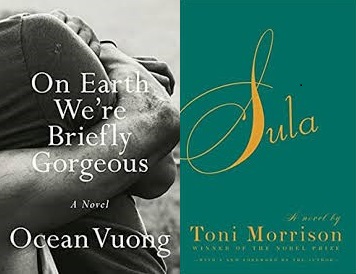
I scoured books and media where female sexuality was central. I explored sexual assault and the porn industry, watching documentaries like Audrie & Daisy and Hot Girls Wanted. Reading Ocean Vuong and Toni Morrison helped me think about queerness and race, which never factored into my awareness growing up. I thought about the Me Too Movement, the increasing awareness around consent. I explored the absence of this language in my early life in my poem, “Consent,” which I wrote and published upon my return.
I’m still in the process of submitting the poems in this project, and it has been a challenge to find homes for them. One editor wrote that “the surprise and power in the poems comes more from the subject matter than from their working out as poems.” They might be right. Being a writer means being relentless and obsessive. I am both. I’ll keep trying.
Rage Hezekiah is a New England–based poet and educator whose poems have been anthologized, translated, and published internationally. She is the author of Unslakable (Paper Nautilus Press, 2019) and Stray Harbor (Finishing Line Press, 2019). You can find out more about her writing at ragehezekiah.com.
(To read more great poetry from Issue 17.1, you can buy copies of the issue in our online store, including the digital version, which is just $5.)

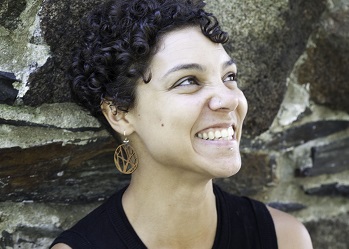

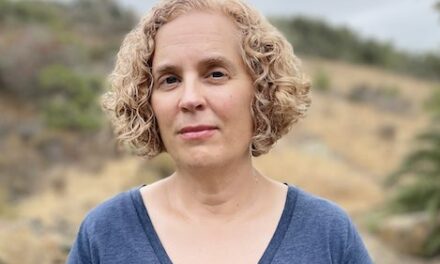
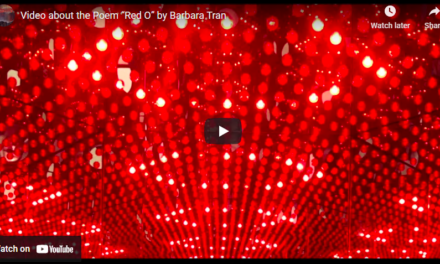
![Katie Berta on Her Poem “[To be a child again.]”](https://www.cincinnatireview.com/wp-content/uploads/2022/12/Berta-house-440x264.jpg)
